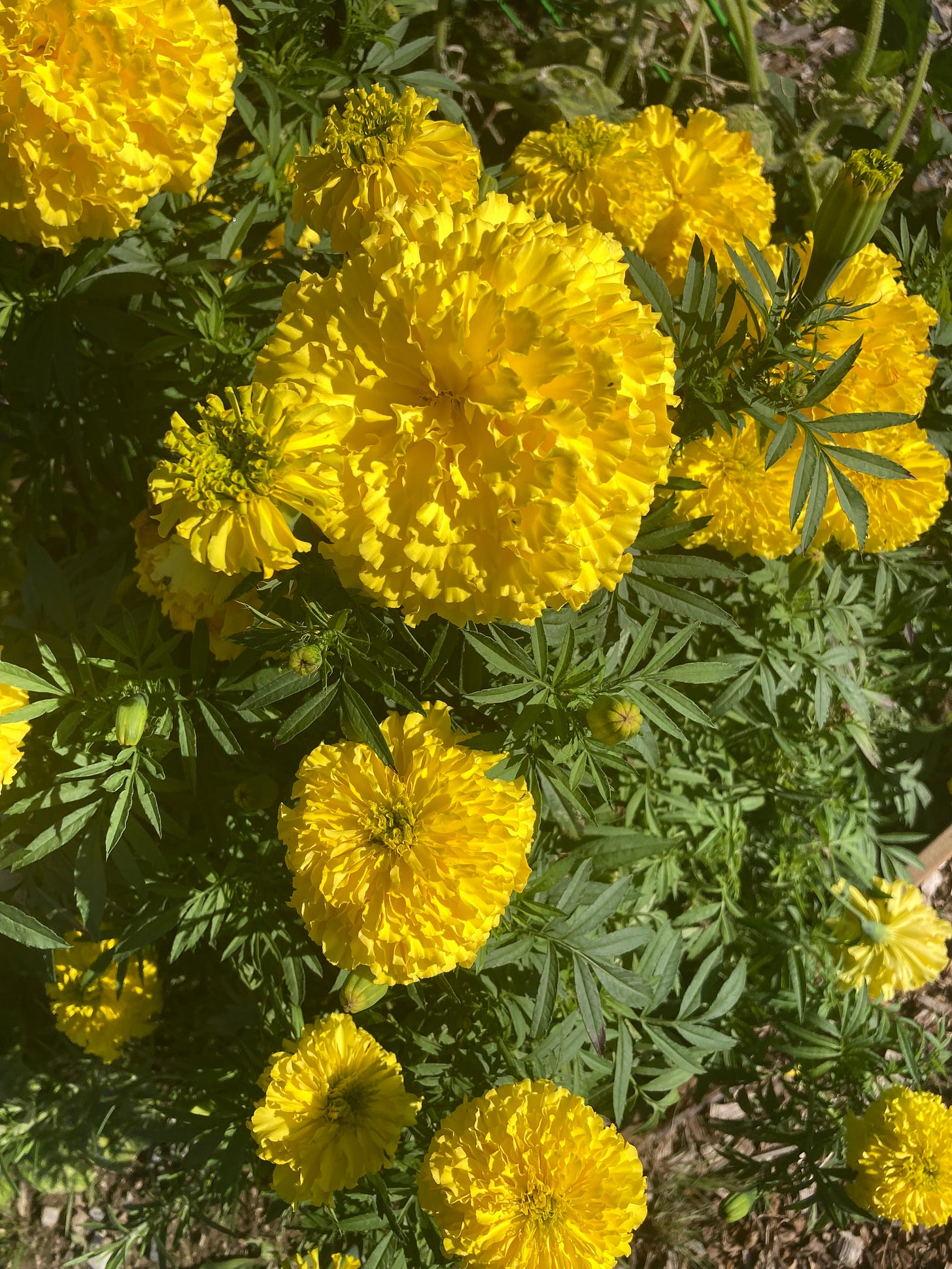Dear Listener,
It’s been another fast-paced month, I’m making sure to get this in before the month ends. Lately, I’ve been reflecting on my garden, now drawing to a close as fall approaches and the cooler weather wraps us in the night sky. Every time I sink my fingers into my soil, I’m struck by the symbols it offers—lessons I’d like to share here.
Each vegetable I grew had its own distinct needs, growth cycles, and responses to sun, rain and temperature. As the season progressed, almost every interaction with my plants felt like a lesson from the Earth—on life, humanity, the interconnectedness of beings. Though my garden was small, it was bustling with life.
The plants grew in unique ways, some more influenced by their distance from the drip irrigation system. These differences made me think about human nature. My heirloom tomato plant, for instance, required far more support than I anticipated. The tomatoes were heavy, their stalks gnarled like ancient trees. In contrast, the pole beans were slow to start, but once they did, they erupted with produce. I found myself curiously sifting through a jungle of vines, always surprised by the hidden beans.
The cucumbers were magical—one week, there were none; the next, I’d discover two enormous ones, juicy and refreshing. The Swiss chard fanned out like a multicolored fountain, and as for the beets, they seemed to announce their readiness by lifting themselves from the soil, saying“I’m done.” Every time I harvested, I found myself whispering “thank you” to each plant, grateful for its offering.
While these observations might seem obvious to seasoned gardeners (I’m a novice), I couldn’t help but draw parallels to human beings. We often expect ourselves to have the same needs, the same capacities, but that doesn’t seem the case.
Though we share a common design— the nuance of our temperaments, bodies, and minds seem further shaped by our genetics, environment and the sum of our experiences. A pole bean, whose nature is to climb and twist, may wonder why it can’t fan out with vibrant colors like the Swiss chard next to it and may ask why it has differnt sun shade and environmental preferences. There’s nothing wrong with the pole bean; it’s just different, with its unique nature.
In my work, I at times find people forgetting to honor their basic needs, much like the fundamentals of gardening. They press forward without adequate sleep, movement, hydration, or nourishment. People vary: some crave the sun, others need the tranquility of water. Some thrive on nine hours of sleep, others feel refreshed with six. For some, walking is ideal, while others find joy in swimming—or their daily work provides enough physical activity. One is not necessarily better than the other, it is a question of optimal match.
If you’ve never tended a garden, I highly recommend it. It’s a gentle, humbling experience. Even though my lettuce was a mess this year, I’m looking forward to what next season will bring.
Thank you for listening to today’s meditation, its simple but intended to be quieting as we transition into the new season. Take care, SL













Share this post